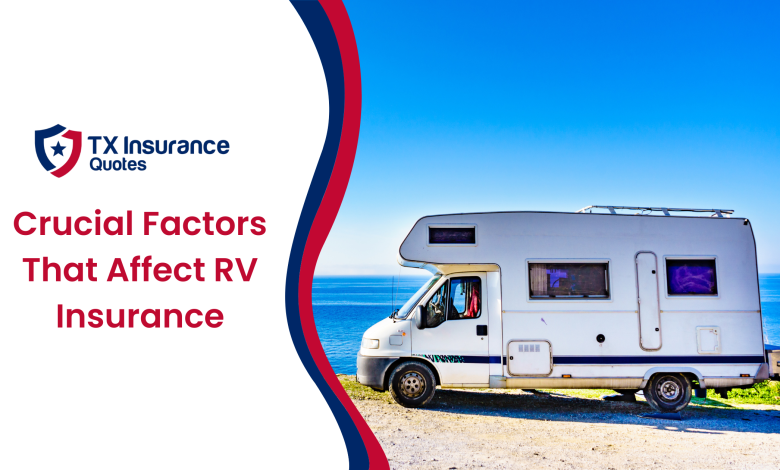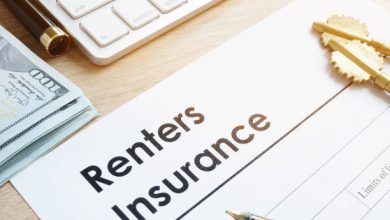Crucial Factors That Affect RV Insurance

Introduction:
Are you an RV enthusiast who takes trips all over the country? If so, it’s essential to ensure you have the right RV insurance policy. Many crucial factors affect RV insurance rates, and understanding them can help you get the best coverage at the most affordable price.
Undoubtedly, RVing is a popular way to travel and see the country, but it’s not exactly cheap. Depending on how you equip and furnish your RV, you can easily spend, for instance: $50,000 or more. Therefore, protecting your investment with the right RV insurance policy is essential. But what factors affect the cost of your policy? And what should you look for in the Laredo RV insurance plan? This blog post will discuss some of the most critical factors that impact RV insurance premiums. We’ll also provide tips on finding the best policy for your needs. So if you’re ready to learn more about RV insurance, keep reading!
Location:
Insurance rates are primarily based on actuarial tables that show the likelihood of an insured event occurring. These tables are different for every state and even for other areas within a state. That’s why you must let your RV insurance company know where you plan to take your vehicle.
The closer you are to urban areas and highways, the higher your rates will be. That’s because the chance of an accident or your RV being vandalized or stolen is much higher in these areas. Let your insurer know if you plan to store your RV on your property. Many companies offer this discount, as it’s much less risky than keeping it in a public storage area.
However, in the case of full-time RVers, the RV insurance company might consider the location of where you spend most of your time with the RV and, after analyzing the actuarial tables, set the premium rates.
Type of RV:
There are many RV types on the market, from simple pop-up trailers to massive diesel pushers. So naturally, the RV you drive will impact your insurance rates. Class A motorhomes tend to have, on average, the highest rates, while class C campers have the lowest rates.
Use – Pleasure or Work?
How you use your RV also affects your insurance rates. For example, RVs used for business purposes are more expensive to insure than those used strictly for recreation. However, if you primarily use your RV for vacations and occasional weekend getaways, you’ll pay less for insurance than someone who lives in their RV full-time.
Coverage Choices:
Certain coverages are required by law, such as liability insurance. Other coverages, such as collision and comprehensive, are not required by law but may be required by your loan company if you have a loan on your RV. Similarly, Full-time insurance coverage may be needed for some campgrounds or parks for those using RV as a permanent residence.
The amount of coverage you want and are willing to pay for will also affect your insurance premiums. For example, increasing your liability limits from the minimum required by your state will result in higher premiums but may give you peace of mind. Or, if you’re willing to self-insure for small claims, you can choose a policy with a high deductible and lower premiums.
Multiple Policy Discounts:
As we all know, homeowners insurance companies often provide a significant discount to customers who purchase their homeowner’s and auto insurance from the same company. You will benefit similarly when you buy your RV insurance from the same company that provides your auto insurance.
This is particularly important for those of you that have high-value vehicles and are paying high premiums for auto insurance. The multiple policy discount may help offset some of the increased cost of insuring your RV. However, not all insurance companies offer such brownie benefits. They may provide auto or homeowners insurance discounts, but the case may not be the same with RV insurance.
You need to opt for another insurance company that could provide such benefits. Heading towards a new company will let you open the doors for availing auto and homeowner insurance along with the RV insurance, and that too at a reduced cost. If switching becomes cost-effective, then it is well worth going for it.
Choice of Deductible:
It’s common knowledge that the higher the deductible you choose, the lower your premiums will be. Like all other insurance policies, Lubbock RV insurance holds the same truth. However, it would help if you decided on your deductible wisely so that you do not face a financial burden while making a claim.
Safe Driving Course:
In recent years, many RV insurance companies have become more vigilant in their underwriting standards. One way they evaluate their risk is whether you have completed an approved defensive driving course.
Completing such a course shows that you are taking proactive steps to improve your safety on the road and, hence, are less likely to be involved in an accident and file a claim. The course is approved by several insurance companies and is provided at the National FMCA Family Reunion Rallies each year. Duration is 6 hours, and at the end, we get certified for driving. The course fee is nominal.
Driving History:
When purchasing your policy or renewing it, the RV insurance company will want to know about your driving history. Whether you are driving a car or an RV, the company needs to know about any accidents or violations that you have had. They will ask for this information when you apply, and they will check it out. If they find anything, your premium may be higher than quoted, or you may not qualify for coverage.
So, make sure that all the red flags you can think of are cleared up before applying for RV insurance to have a clean record followed by favorable rates.
The Final Word:
Since recreational vehicles are nowadays being used as full-time homes by an increasing number of people, it is essential to have the right RV insurance policy in place. A number of crucial factors affect RV insurance rates, and understanding them can help you get the best coverage at the most affordable price. We hope this blog post has given you some insights into the world of RV insurance.
If you have any further questions, please don’t hesitate to contact your insurance agent and get the best auto insurance quotes to save on your premium. Thanks for reading!




